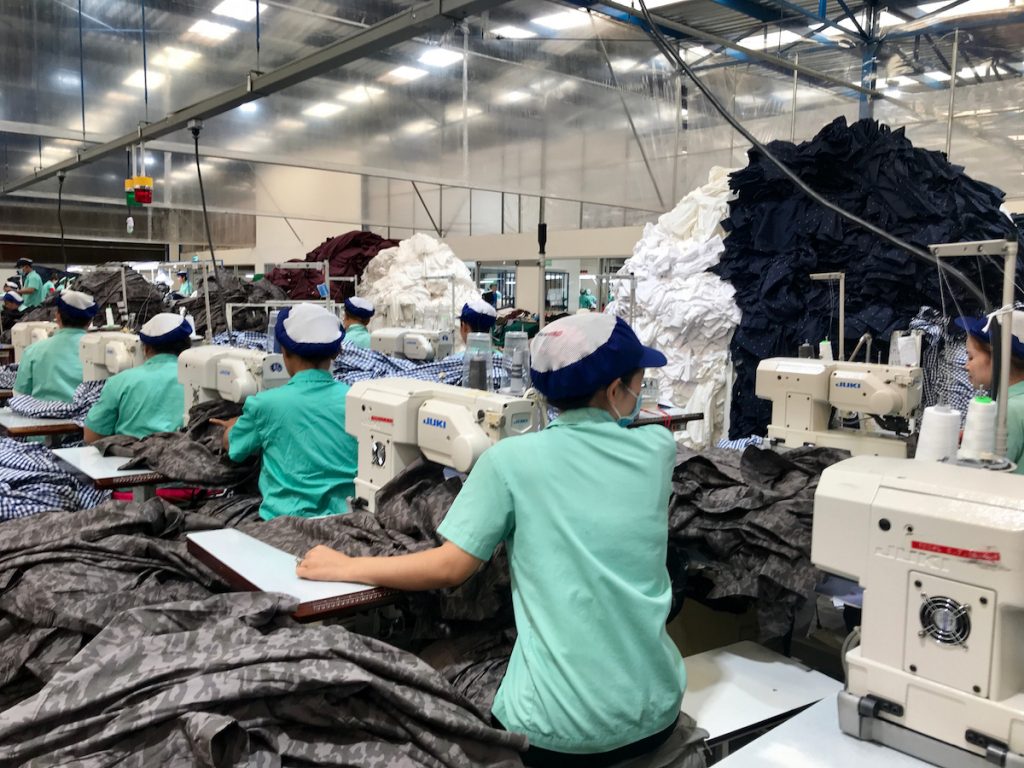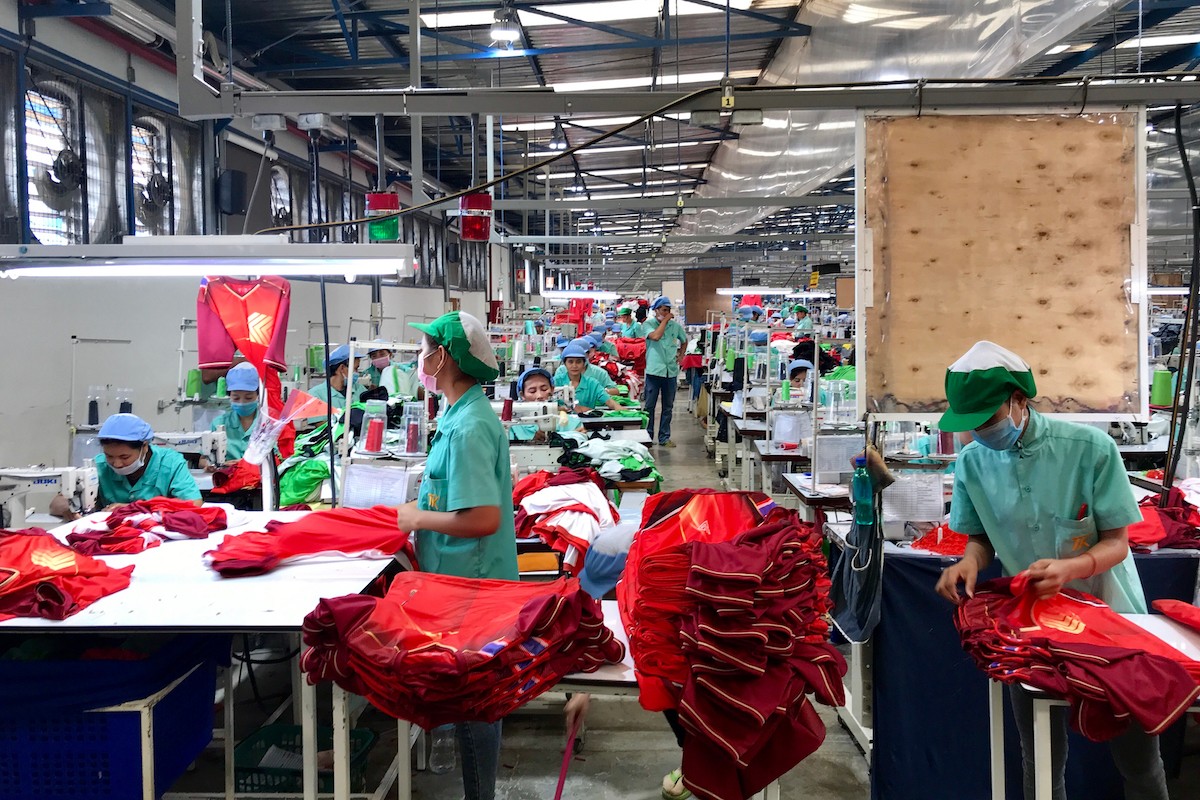The Cambodian government plans to withdraw a 30 percent bonus that the country’s night-shift workers currently receive.
Last month the nation’s Ministry of Labor met relevant stakeholders to bring the salaries of night-shift workers back from the current 130 percent to 100 percent, saying an amendment of the labor law was necessary to make Cambodia more competitive and to attract more investment.
The plan will affect thousands of Cambodians who work in hotels, casino’s, factories and in other places that require night shift workers. The plan has been met with strong criticism from workers, union leaders and labor specialists.
Garment worker, Chet Sophary, currently receives the 30 percent bonus. She works two weeks per month on night shift and another two weeks on days.
The 29-year-old, who works at the E-Garment Factory just outside Phnom Penh, worries she will lose the benefits she currently receives for working nights.
“I don’t agree with this plan, but I don’t know who to ask to stop it,” she said.
Sophary said working at night is far from easy for her, because it often leads to sleeping problems. If she loses the 30 percent bonus, the only incentive for doing so will disappear.
“Most times I only sleep one or two hours during the day, because it’s very hot in my room and it’s often noisy in my neighborhood. There’s always someone who puts music or karaoke on and it’s so loud it stops me from sleeping.”
The labor law amendment was discussed on Jan. 16, when Ministry of Labor officials met representatives of employers and employees. The ministry said it wants to amend three articles in Cambodia’s labor law — articles 144, 162 and 300.
Article 144 has been in force since 1997. The original article stated that those who work between 10 p.m. and 5 a.m. should receive 200 percent of the day shift salary. This was decreased to 130 percent in 2007.

Garment worker Doung Tola, 39, remembers the days when he received the 200 percent bonus for working night shifts.
“I remember that I got a lot more than my colleagues during that time,” he told LiCAS.news.
“But that stopped in 2007 when the government changed the law and pegged it back from 200 to 130 percent. Later my factory was shut down. When I found a new job I no longer received the extra pay.”
Another article set to be changed is Article 162, which currently states that if a public holiday falls on a Sunday, workers will have the following day off. The Ministry of Labor wants to scrap this article in the hope it will make Cambodia more competitive on the global market.
Article 300 is about labor disputes and states that individual labor conflict cases can be to send to Cambodia’s Arbitration Council.
Khun Tharo, a coordinator at labor rights NGO, Central, criticized the plans. He believes the changes to the labor law won’t bring any benefit to workers and will only benefit employers looking to cut costs.
“Workers are quite vulnerable, and this will create even more challenges for those who work in the service sector,” Tharo told LiCAS.news by phone.
The plan will also impact people who work in Cambodia’s casinos, some of which are open 24 hours.
“If the government continues with these amendments and gives us the same wages as day-shift workers, it will affect lots of employees in our casino and in our hotel, because they will then receive a very low wage,” said Chhim Sithar, a night-shift worker at the NagaWorld casino and president of a local union.
“Many workers rely on extra benefits, such as the night-shift bonus they get for working at night time or the extra pay they receive for working during a public holiday.”

The Garment Manufacturers Association in Cambodia (GMAC), which represents hundreds of garment factories, on the other hand said it supports the plans.
In a statement, it said they will improve working conditions and competitiveness.
“[The] GMAC is of the view that the amendment to the labor law, relating to the new article, is the right reform and comes at the most suitable time,” it said.
“In the context of globalization and competition at the current international level, the labor law, which is more than two decades old, should have several articles amended to increase production capacity and the country’s competitiveness.”
Labor union leaders disagree. Rung Chhun, president of the Cambodian Confederation of Unions (CCU), said law changes should be to improve bad laws so that they will be more beneficial for workers and the public.
“But from time to time the government gives more benefits to employers and caters to what employers ask for, not what the workers want. Here, it’s to cut the night shift wage from 130 percent to 100 percent, and now there is talk of cutting the wage of day-shift workers.”
Chhun said this will “encourage employers to run a 24-hour work operation without giving any overtime pay to workers working at night.”
“If the government really wants to make Cambodia more competitive, it should improve infrastructure, lower electricity prices, and make sure investors don’t have to pay corruption fees.”
The labor union president told LiCAS.news that the CCU and a group of unions are working on a campaign to demand the government drop the proposed amendments. If that campaign doesn’t work, protests will be the next step.
“We will then organize peaceful demonstrations to show the government that we’re not accepting this new law, as it does not benefit our workers.”
It is unclear if the Ministry of Labor will hold further discussion on the proposed amendments, or when the changes will come into effect.
Casino worker Chhim Sithar said she supports the idea that Cambodia should be more competitive and should find more investors. But that shouldn’t happen over the backs of workers, she said.
“This will encourage investors to exploit Cambodians who work in the service sector. These workers have no one they can rely on, as our government doesn’t try to get more benefits for us,” she said.







